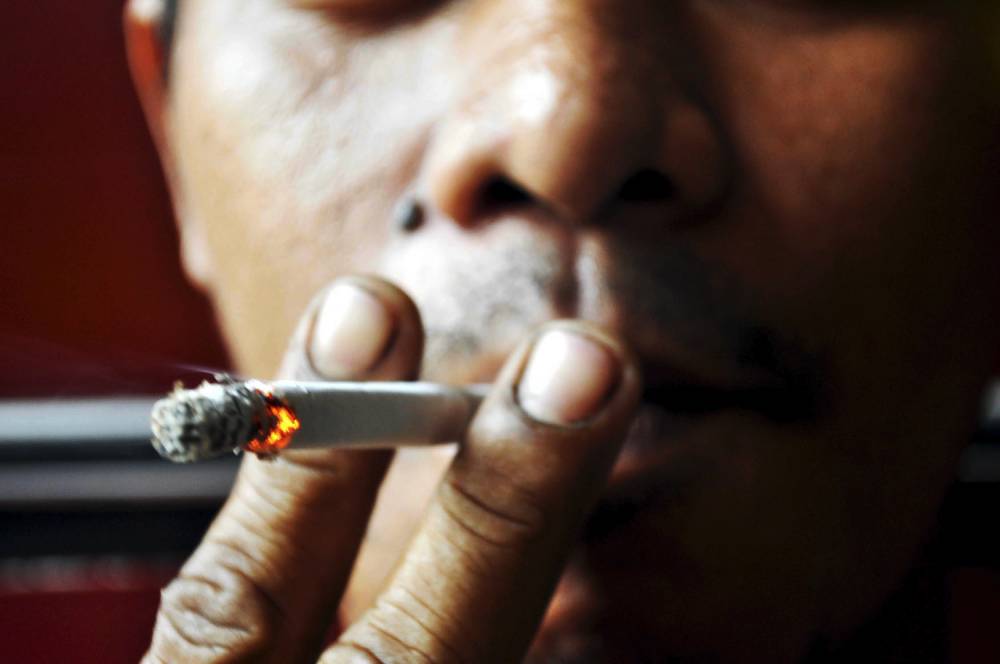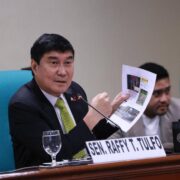Health groups decry House move reducing tobacco excise

Medical professionals and advocacy groups are calling on President Marcos and the Senate to reject what they called as “railroaded” passage of a measure seeking to lower the excise taxes on tobacco products, saying this would “sabotage” the health of Filipinos, especially the youth, by exposing them to a higher risk of cancer when cigarettes and vapes are made more accessible and affordable.
On Monday, House Bill (HB) No. 11360 was approved on third and final reading in the House of Representatives, just five days after it was filed on Jan. 28.
It seeks to implement an “odd-and-even” tax rate increase for cigarettes in an effort to curb the surge of illicit tobacco products in the country. The proposed tax rates are lower than the 5-percent annual tax increase under current laws.
“There is nothing more urgent than the health of our people, especially our next generation. We have worked too hard to enact the sin tax law (Republic Act No. 10351 or the Sin Tax Reform Act of 2012) that has proven to reduce tobacco consumption and smoking among Filipinos,” Dr. Jaime Galvez Tan, former secretary of the Department of Health (DOH) and board member of Health Justice Philippines, said in a statement.
“We refuse measures that will sabotage our hard-won strides that will lead to a surge in the number of Filipinos who will easily access cigarettes, become addicted, acquire diseases like lung cancer, and die from smoking,” he added.
Estimates by policy analysts of the Sin Tax Coalition show that a rollback in sin taxes on tobacco products will make cigarettes more affordable, and result in 400,000 new smokers and vape users—negating the efforts of health authorities and advocacy groups in reducing the number of tobacco users in the country.
‘House failed us’
Should HB 11360 become a law, it would also result in P27 billion worth of lost excise tax collection, which would mean smaller funding for universal health care (UHC) coverage, particularly those lodged in the DOH and the Philippine Health Insurance Corp. (PhilHealth), they said.
“The House of Representatives has failed us. Our hope now is that the Senate and President Marcos will hear the pleas of the people. Please have mercy on the suffering Filipinos and put a stop to the murder of universal health care,” said Dr. Antonio Dans of the National Academy of Science and Technology and professor emeritus at the University of the Philippines College of Medicine.
In a forum on Monday, Dans said they were circulating a petition to be signed by members of different health groups and other supporters, requesting senators not to file a counterpart bill and for the President to veto the legislation should it reach his table for his signature.
“The President has already listened to his secretaries. It is time for him to listen to the people,” he said.
“We are appealing to the good hearts of our government officials. They also have families, children and grandchildren who will be negatively affected should this become a law.”
Blow to cancer prevention
Cancer patients support network Cancer Coalition Philippines also reminded lawmakers that forgone sin taxes would be a roadblock to preventing cancer and administering cancer care.
“Smoking is a major cause of lung cancer which is now the leading cause of cancer-related deaths in the Philippines. Annually, smoking leads to [a] P414-billion loss in productivity and related treatment costs,” Carmen Auste Sarmiento, vice president of Cancer Coalition Philippines, said in a statement.
“The passage of HB 11360 will lead to a projected increase of close to 500,000 new smokers by 2030, many of whom belong to the youth sector. Studies have shown that the sin tax law led to smokers either quitting smoking or reducing their daily consumption,” she added.
Advocates said enforcing the provisions of HB 11360 would cancel out the gains of the sin tax law, and put more young Filipinos at risk and jeopardize the implementation of the UHC law (Republic Act No. 11223).
“We strongly urge our legislators to consider the impact of this action on the health and well-being of everyone. We ask that they reject HB 11360 and reiterate their commitment to a smoke-free Philippines,” Sarmiento said.
New rates
Under HB 11360, the new excise tax rates for all tobacco products shall be increased by 2 percent every even-numbered year starting in 2026, and by 4 percent every odd-numbered year effective in 2027.
The new rates shall be implemented until Dec. 31, 2035, after which a review of the tax imposed and its impact on revenue collections, health costs, and prevalence of smoking shall be conducted.
The bill grants the President the power to increase the excise taxes on tobacco products. “The President, upon the recommendation of the Secretary of Finance, based on the results of the review, may retain the schedule of tax increase, or increase the tax rate by 5 percent effective on Jan. 1 of every year,” it states.
HB 11360 is a substitute to HB 11279, which proposes suspending the 5-percent annual tax increase on tobacco products for the entire 2026, and replacing it with a 6-percent adjustment every two years starting in 2027.

















